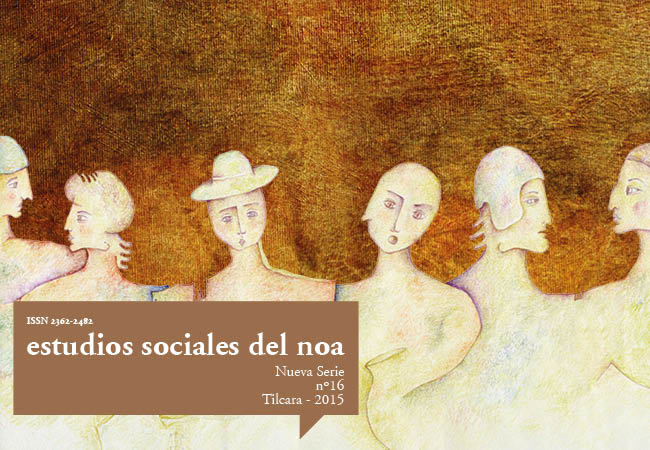Historias manchadas. Una antigenealogía del concepto de lo abigarrado en el área andina
Resumen
En la década de 1980, el sociólogo René Zavaleta Mercado se propuso reconstruir la historia contemporánea de Bolivia. En ese proyecto interpretó que aquel país no es una nación, puesto que se caracteriza por su “formación económico-social abigarrada”, es decir, por una superposición de tiempos históricos, concepciones del mundo, modos de producción y estructuras de autogobierno. En este ensayo recuperamos el concepto de “lo abigarrado” para pensar la heterogeneidad de la ciudad capital de la provincia de Salta, en situación de frontera con Bolivia, Chile y Paraguay. Esta singularidad nos coloca en la necesidad de trazar nuevos mapas que desborden las cartografías oficiales del Estado-nación a partir de la reposición de las experiencias interculturales. En este marco, Salta –en el noroeste argentino– encuentra puntos de conexión con el área andina, lo que nos moviliza a construir categorías analíticas que puedan describir la singularidad de los procesos sociales desde una perspectiva regional. La propuesta de una “antigenealogía” –en referencia a la metáfora del rizoma de Deleuze y Guattari– nos permite trazar un esquema de debates teórico-metodológicos sobre el concepto de lo abigarrado que organiza textos, autores/as e interrogantes de investigación.Descargas
Los/as autores/as que publiquen en esta revista aceptan las siguientes condiciones:
- Los/as autores/as o traductores/as conservan los derechos de autor y ceden a la revista el derecho de la primera publicación, con el trabajo registrado con Licencia Creative Commons Atribución-NoComercial-CompartirIgual 4.0 Internacional, que permite a terceros utilizar lo publicado siempre que mencionen la autoría del trabajo y la primera publicación en esta revista.
- Los/as autores/as pueden realizar otros acuerdos contractuales independientes y adicionales para la distribución no exclusiva de la versión del artículo publicado en ESNOA (p. ej., incluirlo en un repositorio institucional o publicarlo en un libro) siempre que indiquen claramente que el trabajo se publicó por primera vez en esta revista.












